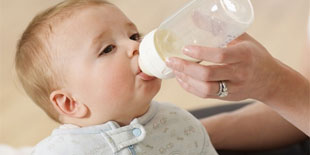Is Colostrum Suitable for Infants?
Bovine colostrum is not suitable for infants, especially children of 0-6 months old. The acidity of bovine colostrum is too high, the proportion of whey protein to casein is not appropriate, and the content of protein in colostrum is too high, which are not suitable for infants. Compared with human milk, bovine colostrum contains incomplete nutrition, lacks a variety of nutrients, and the proportion of casein in the protein is too high for infants to digest, which can also cause allergies.
At present, the research on bovine colostrum in the scientific community is not enough, and many problems have not been clarified. There are basically no scientific and reliable experiments - especially human experimental data, and it is not allowed to do experiments with newborn babies. Most of the information about bovine colostrum is just "ideas" in the mind. In this case, adults can drink, and infants should be treated with caution.




